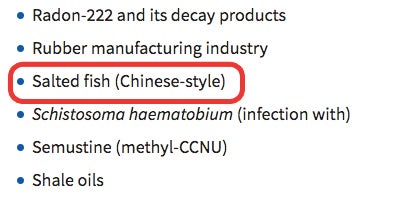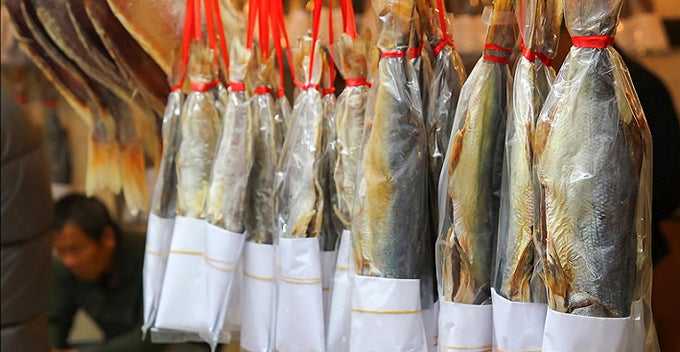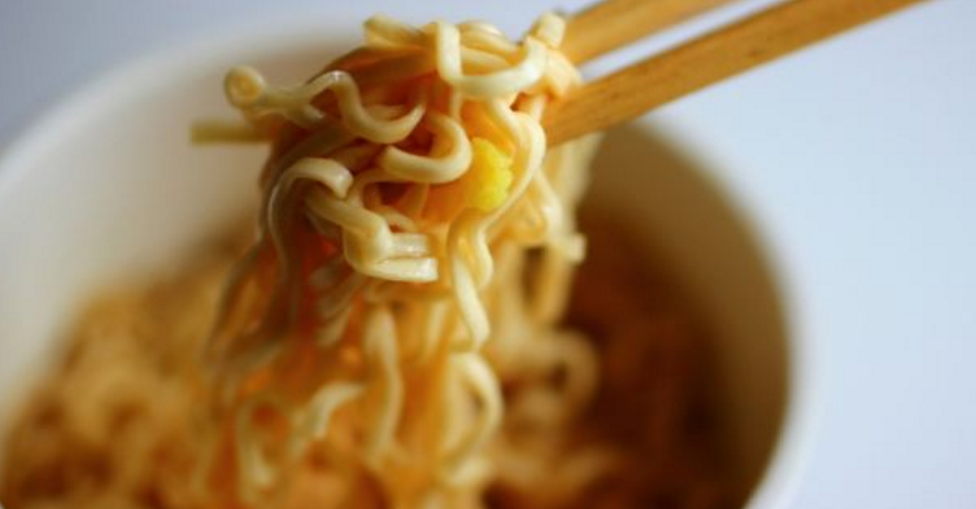Salted fish has always been used in oriental dishes such as bak kut teh and stir-fry vegetables to boost the aroma, but did you know that Chinese-style salted fish is actually carcinogenic?

Source: cosmopolitan currymania
Well, according to a list published by the International Agency for Research on Cancer (IARC), Chinese-style salted fish made the cut into Group 1 of carcinogenic substance together with other processed meat, alcohol and tobacco.

Source: huffpost
FYI, items that are categorised in Group 1 are backed by sufficient evidence from scientists and researchers. You can check out the full list here.
So, how does salted fish cause cancer?
As we all know, salted fish is cured by adding nitrite to curb the growth of bacteria and to colour the food. When it reacts with our gastric juice, hot frying oil or protein from meat, the nitrite will turn into a deadly compound known as nitrosamine which causes cancer.
Besides, salted fish has long been linked to oesophageal cancer, stomach cancer and nasal cancer. Yikes!

Can you still eat salted fish then?
According to an oncologist from China, salted food products should not take all the blame as cancer can be caused by many factors. For instance, fishermen from around the world have been curing and preserving their fish with salt for ages, and most of them live a long and healthy life.

Source: global times
So, this goes to show that cancer is caused by various factors such as genetics and environmental factors.
Should you completely cut out salted fish from your diet? How much is safe to consume?
Well, doctors suggested that the consumption of salted fish should be kept at minimum of once or twice a month. Besides, you should increase your fibre intake to regulate your bowel movement. This can reduce the time of the fish staying in your stomach, thus lowering the absorption of nitrosamine in your body.
If we’re honest, many delicious food that we love have been listed as carcinogenic, and cutting them out of our lives is near impossible, because food is life!
So just eat everything in moderation guys. After all, what is life without good food, right?
Also read: Harvard Studies Reveal the Dark Side of Instant Noodles











































